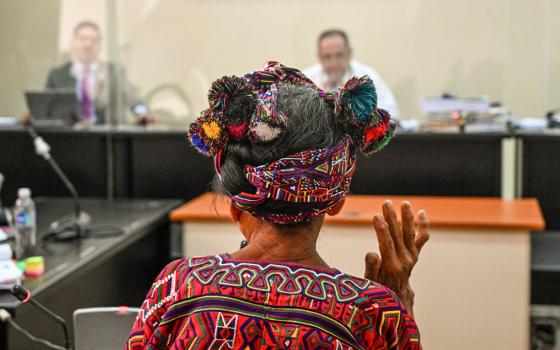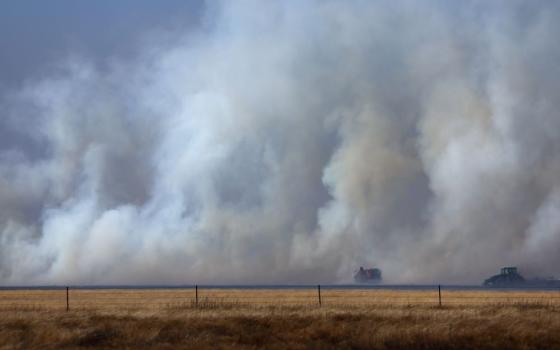The press is called upon to make hundreds of calls every day: Which story deserves the most attention, the most cameras or placement above the fold? What is the right angle from which to report a story or, more often, which angles, in the plural? When reporting a complicated story, what is the root of the matter? How important is it to say something new, something that has not been said before?
This week, in both the coverage of killings in Orlando and of the presidential race, the media have made some significant calls, some of them good and some bad. Here are my verdicts.
Thumbs Down: Sean Hannity. If you want to see how the baiting of Muslims is going, this is your show. The Fox News host is more responsible than anyone for creating the meme positing that the real problem with the war on terror is that President Obama refuses to use the words "radical Islamic terror," as if the key weapon needed in the fight against the Islamic State was one drawn from the arsenal of phraseology. Hannity repeatedly speaks about what Sharia law does and does not require, as if he were some kind of expert, and with apparently no awareness of some of the more extreme demands found in the Mosaic law. That said, it is imperative to watch Hannity on a regular basis if you want to take the temperature of the American right: Donald Trump is the Hannity candidate. Marco Rubio was the Megyn Kelly candidate. The Hannity candidate won.
Thumbs Down: The tally. All news outlets initially reported that there were 50 people killed in the nightclub attack early Sunday morning. By Tuesday morning, many news outlets were reporting that there were 49 victims. There had not been a miscount. No one had been raised from the dead. In short, the "news" had not changed. What had changed was a belief that we should not lump the perpetrator in with those whom he shot. I understand that there is a degree of sensitivity to the victims' families in this decision to lower the tally, but reporters are ill-advised to consider anyone's sensitivities when reporting the news. Where does that end? Worrying about how your viewers will receive the news and self-editing it?
The viewers, or readers, may or may not like what they hear, but it is a television reporter's or news writer's job to report what is significant and what is true, and let the chips fall where they may. I also think there is a case to be made that in these mass shootings, in some meaningful sense of the word, the perpetrator was the first victim of the ideology or psychosis that drove him to act as he did. In any event, as a Catholic and a humanist I believe that death is the one experience that unites us all. (It used to be death and taxes, but the Panama Papers confirmed that lots of rich people do not pay taxes.) Mr. Mateen is as dead as the people he shot. Fifty people died in that nightclub and reporters should say so.
One Thump Up and One Thumb Down: Anderson Cooper. Cooper began his show Monday night with a moving tribute to the victims, saying their names and telling his audience a bit about their lives, their ages and, if available, he showed a picture of them. He got choked up at times, as did I. This humanized the nightmare, reminding us that almost all the victims were young people with their whole lives in front of them, that they had friends and family who loved them, that the LGBT community consists of people in all lines of work. It was emotionally powerful but it did not pander. Instead it illustrated the true horror of the event.
On the other hand, Cooper announced that he would not speak the name of the perpetrator nor show his photo on his show. This is contrived and irresponsible. If he had been a reporter in the 1940s, and he got to Dachau or Auschwitz, would he have failed to mention Hitler and Himmler? It is not Cooper's job to edit out the news. Besides, part of the story, indeed the most difficult part of the story, is the fact of human iniquity. It is not only the victims who were young and had lives and stories: The perpetrator did also. One of the most important lessons I have learned from Sr. Helen Prejean, Karen Clifton, and other leaders of the effort to abolish the death penalty is that even those who have done horrible things, and who have been judged on their worst decisions, possess dignity and worth.
Thumbs Up: The Washington Post. Yesterday morning, the fourth paragraph of a front-page, above-the-fold story about Donald Trump's reaction to the Orlando massacre began with this sentence: "In a speech laden with falsehoods and exaggeration, Trump was antagonistic and pugnacious, in stark contrast with his Democratic opponent, Hillary Clinton, who also spoke Monday about combating terrorism." Bravo, bravo, bravo. It is about time that the media dispense with the idea that "balance" is a substitute for truth. I am past tired watching journalists approach a point that is contested, in which one politician's take may or may not be advisable but the other politician's take is not even plausible. Or when an expert from Brookings is set opposite a propagandist from Heritage. God bless The Washington Post for having the courage to naming Trump's falsehoods and exaggerations and not just reporting them as if they might be true. The entire press corps will have to wrestle with how they report on Trump. The next challenge is confronting him when he spreads a conspiracy theory by saying, "Well many people say. ..." He should never be allowed to complete that sentence by any interviewer worth her salt.
It is not easy being in the press. All of us have to think about how we nurture sources without becoming invested in the outcome of a given story. We have to verify what we are told, sometimes two or three times if the initial account touches on a person's reputation or a controversial point. In the church, this is all made more difficult by the "pontifical secret," that is, information imparted to a churchmen but considered confidential. I try and convince my sources that the pontifical secret means they can only tell one person at a time! In any event, we have to police ourselves, especially on difficult stories like the Orlando shooting and the insanity of Donald Trump.
[Michael Sean Winters is a Visiting Fellow at Catholic University's Institute for Policy Research and Catholic Studies.]




